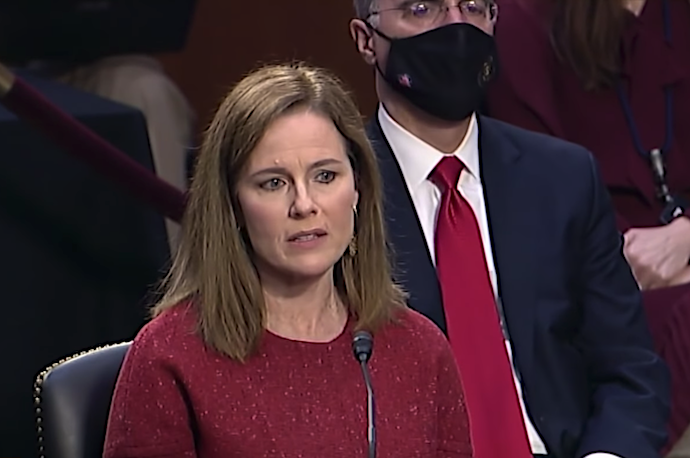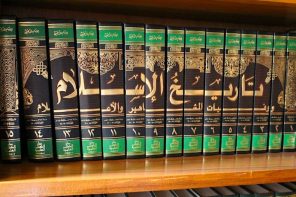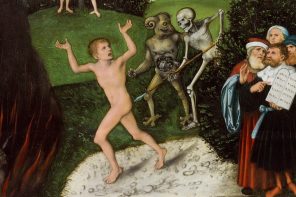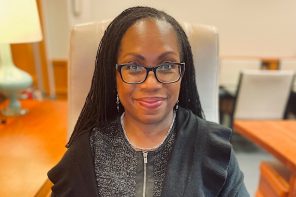Amy Coney Barrett submitted written answers to the Senate last night and they make it clear that she will flip the high court on an issue that is crucial for America to fight the coronavirus, just as the pandemic is flaring up. Barrett telegraphed a willingness to overturn public health measures in the name of God.
The Barrett hearings were not devoid of religion. Barrett’s personal religion was mentioned many times, often as if it were somehow a qualification for office. The same senators praising her religion also decried any attempt to suggest that Barrett’s religion might trump her oath of judicial office. But there was no such suggestion, even though this is something that Barrett herself has admitted to repeatedly. (As I’ve written before, I think this was a dereliction of senators’ duty.)
Throughout the hearings, Barrett was willing to answer substantive and hypothetical questions from her supporters, but refused to do the same from senators on the other side. That strategy continued in the Questions for the Record, known as QFRs. Barrett’s answers, submitted last night, were in line with what we saw in the hearing. For instance, when asked a straightforward question with a simple answer from a senator likely to vote against her, Barrett stonewalled.
QUESTION: According to federal law, is it legal to vote twice in a single federal election?
RESPONSE: As a sitting judge and as a judicial nominee, it would not be appropriate for me to offer an opinion on abstract legal issues or hypotheticals. Nor would it be appropriate for me to opine on the statements of any political figure or on any subject of political controversy.
That question was neither abstract nor hypothetical; the answer was both disingenuous and dishonest.
But Barrett was looser with her supporters. Buried on the final page of the 184-page QFR, in the final question, one from Senator Marsha Blackburn (R-TN.), is a deeply alarming answer.
QUESTION: States have the authority and responsibility to protect the health of their citizens, but they must also uphold First Amendment protections—including the free exercise of religion. Recently, some churches across the country have asserted their rights have been infringed because of states selectively enforcing public health restrictions on places of worship. Do states infringe on the free exercise of religion when they selectively restrict a religious gathering as a matter of enforcement discretion?
RESPONSE: The Supreme Court has explained that “[o]fficial action that targets religious conduct for distinctive treatment cannot be shielded by mere compliance with the requirement of facial neutrality” and that “[t]he Free Exercise Clause protects against governmental hostility which is masked, as well as overt.” Church of the Lukumi Babalu Aye, Inc. v. City of Hialeah, 508 U.S. 520, 534 (1993). The application of these principles to public health restrictions is a matter of ongoing legal dispute.
This should scare every American. As pandemic cases soar worldwide, with hundreds of thousands of Americans already dead from this virus, Barrett is virtually promising to allow churches to hold superspreader events every week—just like the superspreader event held at the White House to announce her nomination. This is reckless to the point of deadly and it clearly shows Barrett is unfit to be a judge on any court, let alone the highest court in the land.
The premise of Blackburn’s question is deeply flawed. Public health measures are not being “selectively” enforced against churches. It’s just that churches have an undeserved sense of entitlement and are deliberately and publicly violating the orders and spreading the disease. The rules apply equally, but are enforced against those who break the rules, including gyms and other non-religious entities. Blackburn’s question is like asking why criminal laws are being selectively enforced against criminals.
Barrett’s entire strategy has been to avoid answering any questions that might be in the slightest controversial. Those refusals are themselves tells. But here, she answers first, then disclaims an ability to answer. That means she doesn’t find this controversial or maybe thinks it’s an easy question. Standing alone, that might be reasonable, but not when we consider the case she cited: Church of the Lukumi Babalu Aye, Inc. v. City of Hialeah.
It is telling and deeply disturbing that Barrett cites this infamous Supreme Court case as the controlling case to answer the question about whether churches, like every other similarly-situated entity, are subject to public health measures. In Lukumi, local government officials, with unabashed bigotry, used their government powers to try and stamp out a Santeria church. The coronavirus health measures apply to all similarly-situated entities equally and are meant to save lives. The targeted bigotry and abuse in Lukumi has absolutely nothing to do with universally applicable life-saving public health laws.
The two scenarios couldn’t be more different. The Lukumi case involved the City of Hialeah, which held an emergency session of the City Council in a “mob atmosphere” just weeks after the Santeria church tried to open. The president of the city council asked: “What can we do to prevent the Church from opening?” The city attorney said in the meeting that “This community will not tolerate religious practices which are abhorrent to its citizens,” sentiments echoed by the deputy city attorney.
The council passed ordinances that targeted “religious practices” in one, “animal sacrifice” in a second, and “ritualistic animal sacrifice” in another. Christians in office were using government power to kick a minority religion out of town. One councilman cited biblical law to justify the bigotry: “I don’t believe that the Bible allows that.” Police actively enforced the new rules, but only against the church, setting up a perimeter around the church and stopping and searching clergy as they came and went. The government had effectively outlawed a particular religion’s holy ritual.
That Barrett sees common-sense health measures as analogous to Lukumi is disturbing. If she didn’t agree with the fabricated premise of the question—that churches are targeted—she would have dodged the question, as she dodged so many others, including straightforward questions about voting twice. A charitable interpretation would be that Barrett is blinded by a Christian persecution complex. A more likely interpretation is that she is driven to codify Christian supremacy into the law, that she intends to use her position and power to “build the Kingdom of God.”
Barrett’s refusals were tells. Her answers leave little doubt that she will vote to overturn important civil rights precedents, whether it be Roe v. Wade or marriage equality (Obergefell v. Hodges). There is every reason to believe she is going to vote to destroy the Affordable Care Act and rip healthcare away from millions of Americans in the middle of a pandemic. That she actually accepted the premise of this question and cited Lukumi to answer it gives us another insight.
Now we know that Barrett will work to give churches, which have already done so much to spread the deadly virus, a constitutional right to risk the lives of every citizen. This will flip the Court on this critical issue and spread a deadly virus. Confirming Amy Coney Barrett will be a disaster for America.





